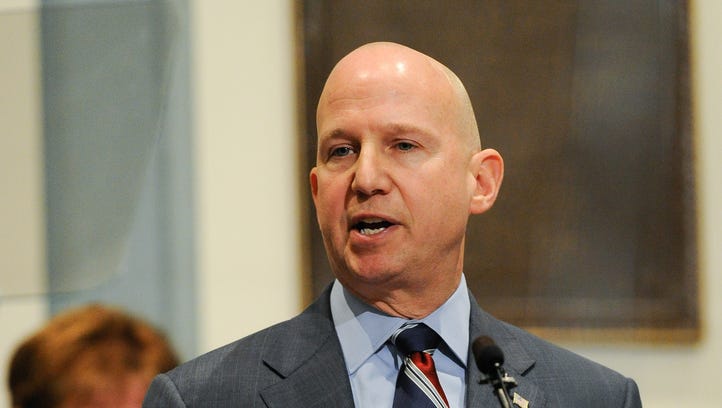Charter school payments draw scrutiny from Pa. auditor:
Charter school payments draw scrutiny from Pa. auditor
HARRISBURG - Pennsylvania's fiscal watchdog on Wednesday questioned millions of public dollars paid to charter school landlords and called for the state to monitor such lease payments more closely.
At a Capitol news conference, Auditor General Eugene DePasquale highlighted more than $2.5 million in lease reimbursements to nine charter schools, including the Propel Charter School System in Allegheny County, the Chester Community Charter School in Delaware County, and School Lane Charter School in Bucks County.
Without offering details, DePasquale said his office found ties between the schools and their property owners that could contradict state guidelines that deem buildings owned by a charter school ineligible for lease reimbursement.
"What we found in some of our audits is that the same people who own and operate charter schools, they themselves create separate legal entities to own the buildings and lease them to charter schools," DePasquale said.
Charter schools, which are public schools operated by private entities, have exploded across the commonwealth in recent years and become a contentious topic among educators, parents, and community leaders.
More than 150 operate statewide, enrolling well above of 128,000 students, state data show. Nearly half the schools are in Philadelphia.
The Republican-led legislature has been generally supportive of expanding charter schools, arguing that they provide parents with options and press the traditional public schools to improve. Gov. Tom Corbett agreed with them when he was in office.
Critics, including the state teachers' union, have questioned the academic success of charter schools and blamed payments to them for driving up district budgets and hurting traditional schools. Gov. Wolf, a Democrat who counts the teachers as reliable allies, has signaled his administration will look more closely at the impact of charter schools.
DePasquale, a Democrat seeking reelection this fall, faulted the state Department of Education for not checking who owns charter-school buildings.
"The problem is that we find zero evidence that the Pennsylvania Department of Education makes any effort to verify ownership of the buildings or look for conflicts of interest between the school and related parties," he said. "They simply write a check for whatever amount the charter school submits."
He said that the Education Department asked the Auditor General's Office about six years ago to review such connections and that the auditor's staff had done so.
"We keep finding it and supplying the information to the department, and they do nothing with it," he said.
DePasquale made a similar call for scrutiny in March 2013, when he said that audits of six charter schools found they had improperly received more than $550,000 in lease reimbursements from the state for properties related to or owned by the schools. It was unclear if that money was ever repaid.
In a statement late Wednesday, the department said any charter school seeking reimbursement for a portion of its lease expenses completes a request each year that requires the CEO to attest that the school is eligible for reimbursement.
"We have already begun reviewing our annual process to apply greater safeguards ensuring that every taxpayer dollar is spent appropriately," the statement said. "Unfortunately, current law does not grant PDE the authority to seek repayment from the charter schools for inappropriate payments."
In his announcement and at a news conference, DePasquale did not name the landlords or offer details on the alleged connections.






















